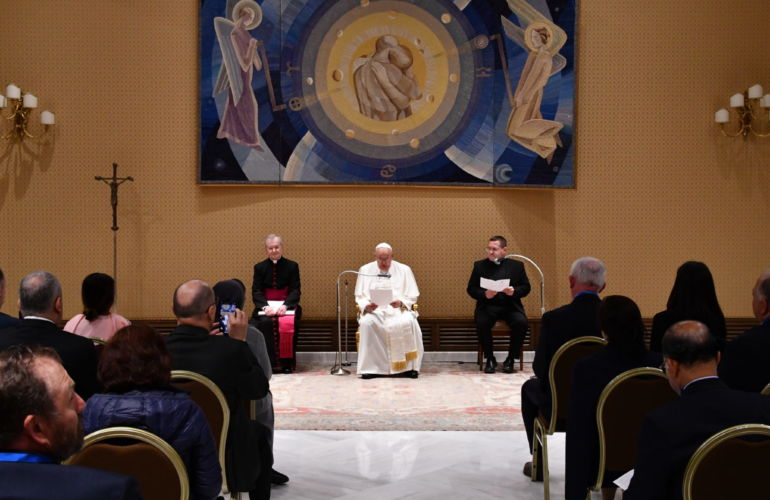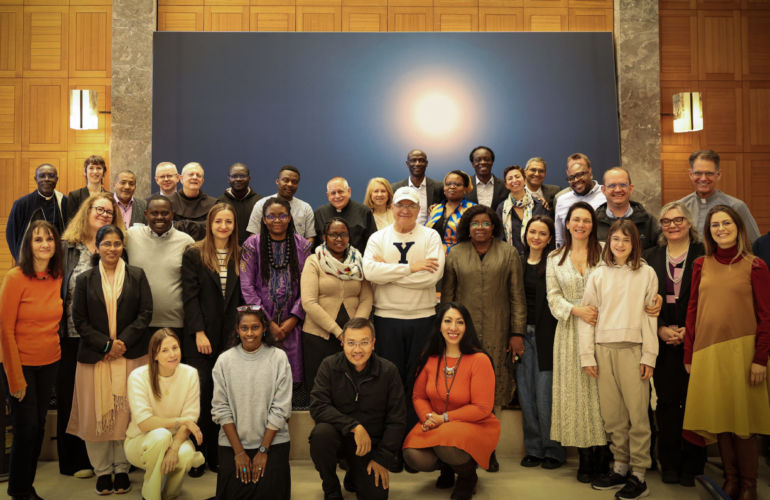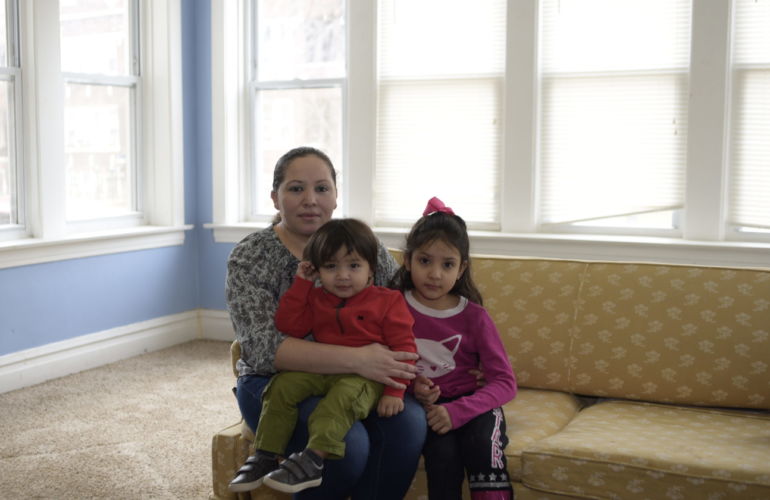“Our Doors Are Always Open, We Do Not Reject Anyone” – Saint Charles’ Clinic for Women in La Rochelle, South Africa
Since January 2024, ICMC has partnered with the Saint Charles’ Clinic in La Rochelle, Johannesburg, to provide primary healthcare to migrant and refugee women as well as underprivileged South African women. The clinic opened in August 2023, thanks in no small part to the efforts and determination of its director, Father Eduardo Gabriel of the Congregation of the Missionaries of Saint Charles – Scalabrinians.
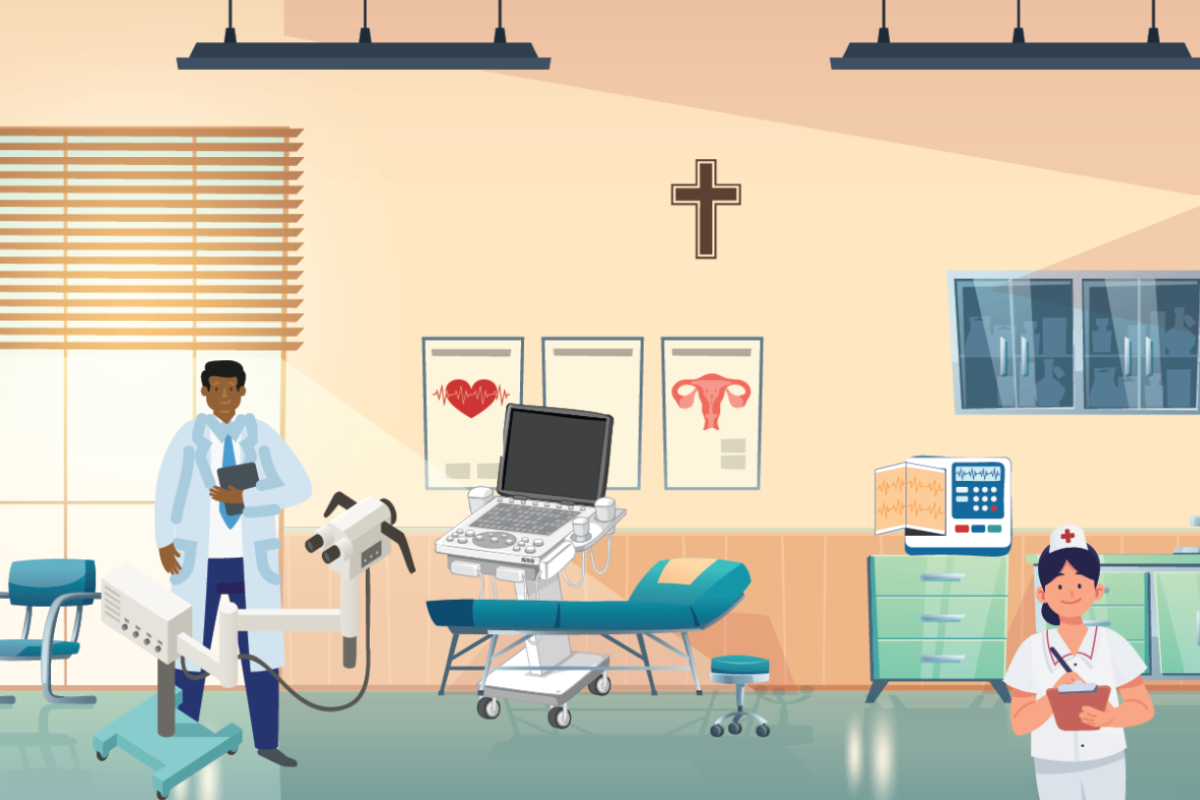
Migrants frequently encounter challenges in obtaining necessary medical services due to discrimination, financial constraints, or legal restrictions. The Saint Charles’ Clinic, and similar projects, represent the only hope for many people on the move in South Africa to access healthcare. In this Q&A, Fr. Eduardo explains how the Saint Charles’ Clinic operates, the services it offers to the migrant population as well as the local community, and his hopes for the future of the project.
Father Eduardo, could you present the Saint Charles’ Clinic Project?
I came to Johannesburg in September 2021, in the middle of the COVID-19 pandemic, to organize a social project for migrants and refugees in our parish. The archdiocese had a big building, an old Sisters’ convent that was no longer being used. The idea was to renovate the building and turn it into a center for migrants and refugees, which we were able to do thanks to some funds from the Papal Foundation, an organization in the United States of America, and from the Southern African Catholic Bishops’ Conference (SACBC).
We run different social projects from the center for migrants and refugees, as well as for our parishioners: we have a sewing class, a computer class. And then, we have the Saint Charles’ Clinic.
After getting all the legal documents from the Health Department of South Africa to register the clinic, we started organizing the place. I began by inviting the people from the parish. One of our members is a medical doctor from Rwanda. He came to help us organize and invited his friend to help us and be one of the directors.
We started to operate in the first half of 2023, but we needed funding to continue. I began collecting funds to launch a pilot project from August to December 2023. I went to families, people in the parish, and private sponsors and knocked on their doors. Together, we raised enough money to hire a nurse, Sr. Dadi, who worked four hours twice a week for four months. She came to the clinic, screened the patients, and if she noticed any major issue, she would notify the doctor and book an appointment with him.
During the first month, around 82 people visited. By the end of the pilot project, we had helped 200 women from Angola, Burundi, Cameroon, the Republic of Congo, the Democratic Republic of Congo, Malawi, Mozambique, Rwanda, Tanzania, Zambia, Zimbabwe, and South Africa.
After that, I traveled to Geneva, where I met with ICMC staff. I explained the project. By the grace of God, they helped me finance it for six months. Thanks to ICMC, we now have funding from January to June this year and are able to operate three times a week, four hours a day.
What care does the clinic provide?
We work primarily with women because the doctor who volunteers for us, Dr. Bernard, is a gynecologist and oncologist for women. We provide basic healthcare for women. The nurse offers orientation and does Pap smears, exams, blood tests, etc. We have also started providing HIV testing for those who want to be tested. We then pay a private laboratory to analyze the results of this test designed to detect HIV infection.
We also have in the budget some funds to buy some medicine if needed. We don’t have medicine in stock at the clinic for legal reasons—it is a very long process to obtain the authorization to stock medicine in South Africa. But if the doctor sees the need for medicine, we will get the prescription and then buy it at the pharmacy.
We also provide counseling: our counselor comes once a week and talks with women at the clinic about nutrition, HIV/AIDS awareness, domestic violence, mental health and psychosocial support. Through counselling, we can reduce isolation, promote social acceptance of people suffering of HIV, share accurate information and overall, help people take better care of themselves.
We have also begun to work with children, especially migrants and refugees. We started working with an organization here in South Africa called Three2Six that helps children in school. We go with them to the classroom, where our nurse conducts some screening.
Another significant contribution of the clinic is the referral letters. When a patient comes to us but needs further treatment, the doctor or the nurse will write a referral letter so that they can go to the hospital and receive additional treatment, that we are not able to provide. And this is extremely important for them because hospitals often reject migrants and refugees. Last year, a lady came to the clinic, and we discovered that she had breast cancer. So, the doctor wrote her a referral letter, put her in contact with the hospital, and helped her receive her treatment and operation.
Finally, we have also organized awareness-raising campaigns about women’s health, breast cancer, and gender-based violence, and we are looking to launch a new campaign about HIV.
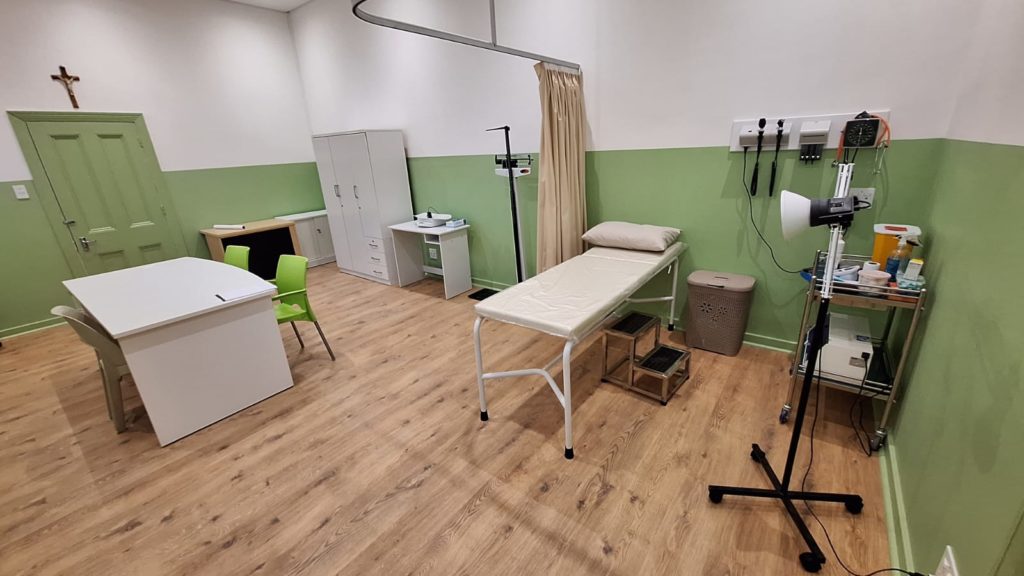
Why is there a need for a clinic for migrants and refugees?
We function according to the four principles recommended by Pope Francis for social projects to help migrants and refugees: welcome, protect, promote, and integrate. So, we are a sanctuary for women, particularly migrants and refugees, where they are treated with dignity and respect and can discuss their problems without any judgment.
The national Constitution guarantees access to healthcare, but the situation is very different for migrants. It is a very big issue in South Africa, and all over the world, really.
Migrants and refugees often are mistreated and refused access to treatment, which denies them their right to healthcare. Universal access to treatment is not always guaranteed: patients need to pay a small amount in the national health system, but most do not have any money. We are not trying to compete with the State. We are trying to help them serve the people who need it. Not only migrants, but also South Africans, such as underprivileged women. They are all welcome.
Is the clinic open to everyone?
We will see everyone who comes for a primary screening. We strive to make a difference in the lives of all, so our doors are always open, and we do not reject anyone.
Recently, two children were brought to the clinic with a request for a check-up and screening. I told the nurse and the secretary, “If people come here to see a nurse, even if they are men, we are open for them.” As I have said, we do not reject anyone. If we can help them, we help them.
But we explain to them that we can only perform basic screening, blood tests, temperature, sugar level, etc., and we make it clear that it is unlikely that the doctor will be able to see them. If he is available, he will come to the clinic, especially if it is to see children.
It’s also important to note that we are serving more than just the people from the parish. Everyone is welcome. We do not discriminate. We don’t ask them where they are from, their status, religion, or anything. We serve everyone who comes as much as we can.
Does the clinic also pay for treatment?
It’s a case-by-case scenario. In our proposal to ICMC, we included some expenses for medication and treatment because if they need an exam or a test, and if we have the budget, we will help them. Because we are very often their last hope, and I cannot tell them, “Sorry, but we can’t help you.”
There was a case of a lady who needed a laboratory analysis but did not have the money to pay for it. She explained her situation, and we paid for the test. She was very poor —all of them are, which is why they need our help.
I hope and pray that we have the capacity to continue to help anyone who comes to us when necessary.
Do you have any plans to expand your activities?
I really want to have a doctor, a GP, come to the clinic to work with men and children. I hope we can also begin to serve the elderly and the most vulnerable. Hopefully, we can expand in 2024 or in the coming years to provide care for the elderly and children.
I would also like our clinic to become a space for studies and to connect with research centers in the country so that we can better understand the situation and the reality of women’s health in South Africa, especially regarding migrants and refugees.
Another thing I would like is to start a professional caregiving training program so that the women who come to us, and who don’t have jobs or money, can learn the required skills to become caregivers and then work for a hospital, a home for the elderly, or even our clinic.
I hope and pray we can continue to expand. It’s a very pioneering project in South Africa because it is not easy to open a clinic for migrants. But they like to be close to the Church; they trust us because we don’t charge them or ask for legal documents.
Father Eduardo Gabriel is a Sociologist and Priest from the Congregation of the Missionaries of Saint Charles – Scalabrinian. He is based in Saint Patrick’s Parish, La Rochelle, Johannesburg. He was interviewed by ICMC in March 2024, while attending an ICMC-organized workshop on the role of faith-based organizations in providing HIV care to migrants and refugees.
- Learn more about the work of the Southern African Catholic Bishops’ Conference, ICMC’s member in Southern Africa, with migrants and refugees
- Watch this video interview with H.E. Archbishop Buti Tlhagale, Archbishop of Johannesburg, to learn more about the activities and advocacy undertaken by ICMC’s member organization in Southern Africa for and with migrants and refugees.

